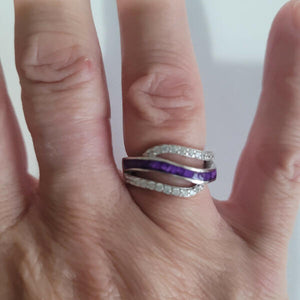When someone dies- After-death checklist- part 2

When someone dies- After-death checklist- part 2 by Kristina Kennedy-Aguero
When someone dies, knowing what to do can help you through a difficult and emotional time. This is the second part of our after-death checklists which will guide you through the legal and social requirements after a death. In the previous blog, we considered how to obtain the death certificate and register the death.
Organ donation when someone dies
The time frame for donating organs is very short so it is at the top of this after-death checklist of what to do when someone dies. It is very important to investigate as soon as possible if the deceased wanted their organs donated. You can find this information at NHS Organ Donor Register.
The disposal of their body
If the deceased has not expressed his preferences verbally before his death you must see if they left a letter of instruction in their paperwork. Check if they had made prepayments to a funeral home or cemetery. It is possible that their solicitor may have this information. The wishes of the deceased must be followed if found. If you cannot find any instructions you may want to discuss the matter with the other family members. It will be left to you to decide what type of funeral, burial, cremation, you want and/or afford.
Once you register the death, them you can make funeral arrngements. The funeral director will normally arrange the transportation of the body.
What to do with the property, dependants or pets when someone dies
You must securely lock up the home and vehicles of the deceased. Additionally, you must make temporary arrangements for the short-term care of any pets or dependants of the deceased.
Who to contact when someone dies
- The landlord of the deceased or organisations like council housing offices or a housing association. Additionally, you should inform employers, mortgage, and utility providers.
- Government offices including the Passport Office, Department for Work and Pensions, HM Revenue & Customs, Driver and Vehicle Licensing Agency, public sector, or armed forces pension scheme, and the Local Council.
- Creditors and insurers, including the deceased's bank or building society, insurance companies, credit card companies, pension providers etc.
Next of kin
Surprisingly, under UK law there is no legal order defining a person's next of kin. It is generally considered to be the person with the closest relationship to the person at the time of their death. The next of kin does not have to be a family member, but can be a close friend, if the deceased has expressed this wish. Normally, however, the next of kin would be the closest family relative. This person will take charge of the arrangements.
What happens when someone dies without a next of kin?
If no next of kin can be identified the local council in the place the person dies will make the funeral arrangements and dispose of their estate. The person receives a public health funeral, which includes a simple coffin and service and a funeral director is assigned to arrange the burial or cremation.






